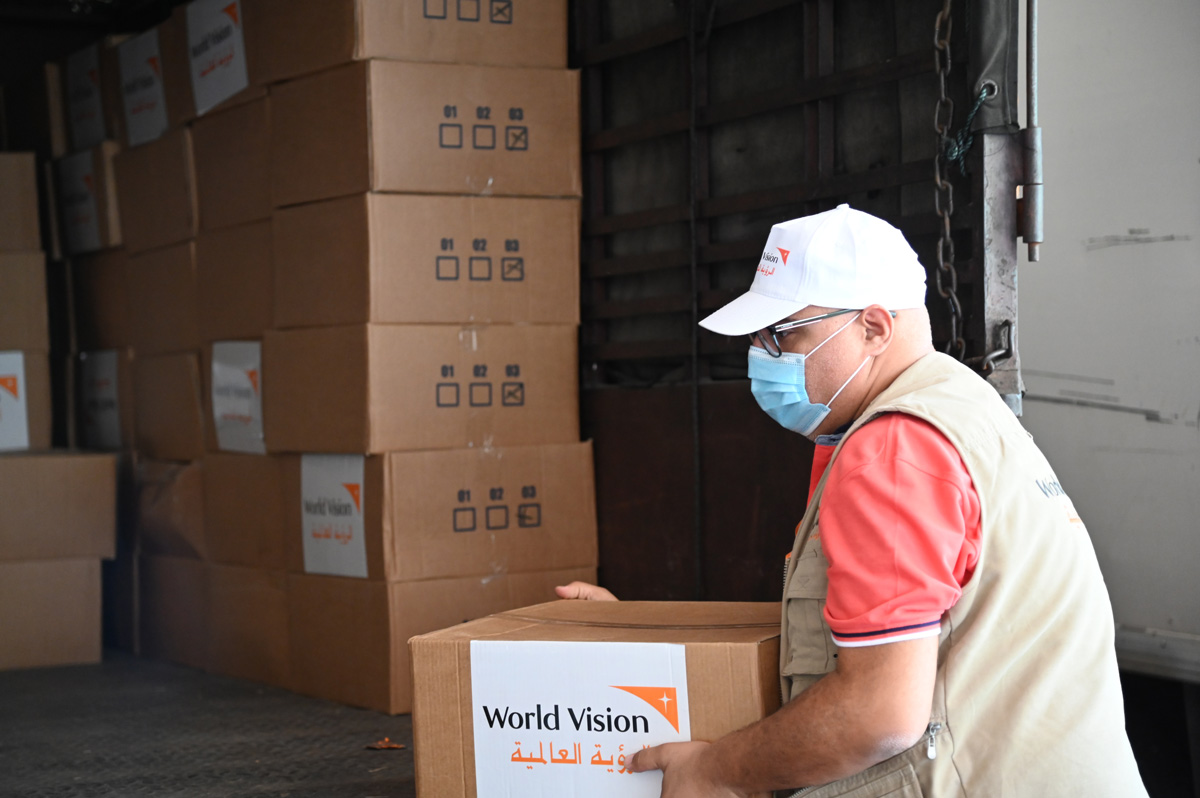BEIRUT (February 4, 2021) — Christian humanitarian organization, World Vision, today said that even though the emergency response to the Beirut blast, which took place six months ago, was swift and largely effective, children and their families are struggling more than ever. In fact, their situation has never been worse.
The explosion added to a crisis situation that was already taking place because of COVID-19. Schools are closed, health facilities are not accessible, families cannot work or afford food and water is not running. The result is chronic: 541,000 vulnerable children are at risk of child labor and child marriage as their families struggle to support them. Children and caregivers report mental health and psycho social support concerns are on the rise, and if left unsupported, this will put children at high risks of mental health challenges.
“The World Vision team in Lebanon is extremely grateful to those who provided immediate support following the explosion, but we ask you to remember that just because they have left the news headlines, it does not mean the people of Beirut no longer need help,” said Hans Bederski, World Vision’s country director in Lebanon.
“The emergency situation following the explosion may have calmed, however the Lebanese people still struggle to survive numerous ongoing crises. COVID-19 has left parents with no work and their children with no access to education and at risk of forced labor and marriage,” he continued.
“It is almost impossible for people in Lebanon to overcome this dire situation on their own. We call on the international community to prioritize the children of Lebanon who are facing an impossible situation. If we do not act now, the protection and well-being of thousands of children will be jeopardized.”
In the six months since the blast, World Vision has helped more than 91,000 people with food, psychological support and more. We also continue to plan for future emergency interventions to address emerging needs of 163,000 people impacted by the explosion. In response to the numerous crises, we are delivering child protection programming, water, sanitation and hygiene, basic assistance and livelihood, shelter and education.
“Six months ago, families in Beirut who were already struggling to survive COVID-19 and an economic crisis were forced to deal with another catastrophe in the form of a devastating explosion. Six months later they have not recovered. In fact, things are worse for them,” said Rami Shamma, field operations director for World Vision Lebanon. “We call for international solidarity for the people of Lebanon, they are in no less of a crisis situation now than they were on August 4.”
World Vision has been working in Lebanon since the onset of the civil war in Lebanon in 1975 and continues to assist Lebanese families in addition to refugee communities through emergency relief, development projects, as well as advocacy.
